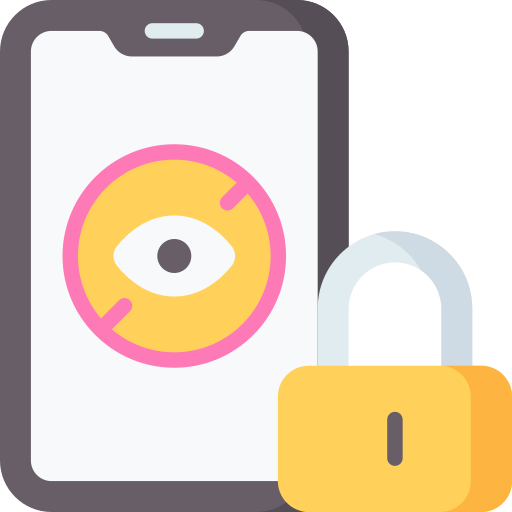The Risks of Online Exposure
With the immense growth and accessibility of the internet, the risks of online exposure have become a pressing concern for individuals of all ages. Children, in particular, are vulnerable to various dangers lurking in cyberspace. One of the significant risks involves the exposure to age-inappropriate content, including explicit material. This exposure can have serious implications on a child’s emotional and psychological well-being. Additionally, online platforms provide an avenue for cyberbullying and harassment, further exacerbating the negative impact of online exposure on children’s mental health. It is crucial for parents, guardians, and educators to be aware of these risks and take necessary measures to protect children from the potential harm of online exposure.
Moreover, online exposure can also pose risks to adults, as it leaves individuals susceptible to identity theft, online scams, and invasion of privacy. With the proliferation of social media and online platforms, personal information is often shared and stored on various websites, making individuals vulnerable to hacking and other malicious activities. Furthermore, the internet is rife with fake news and misinformation, which can lead to distorted perceptions, misinformation spreading, and even manipulation of individual opinions and beliefs. As such, it is crucial for both adults and children to exercise caution and practice online safety measures to mitigate the potential risks associated with online exposure.
Understanding the Impact of Pornography on Children
Pornography can have a significant impact on children, and it is crucial for parents and caregivers to understand this influence. Exposure to explicit sexual content at a young age can lead to various negative consequences. Research suggests that children exposed to pornography may experience distorted perceptions of sex and relationships, as well as an increased risk of engaging in risky sexual behaviors. It can also contribute to feelings of shame, guilt, and confusion, affecting their self-esteem and overall psychological well-being.
Furthermore, the accessibility of online pornography poses a unique challenge for parents. With just a few clicks, children can access explicit content that they are not emotionally or developmentally ready for. The graphic nature of pornography can be traumatizing for young minds, and it may lead to the development of unhealthy attitudes towards sex and unrealistic expectations. It is crucial for parents to recognize the potential harm that pornography can cause and take proactive steps to protect their children from its negative effects.
Creating a Safe and Age-Appropriate Online Environment
In today’s digital age, it is crucial for parents and guardians to take proactive steps in ensuring a safe and age-appropriate online environment for children. One of the first measures to consider is setting up parental controls and filtering software on devices. These tools can help block inappropriate content, limit access to certain websites or apps, and even set time restrictions for internet usage. By implementing these controls, parents can have peace of mind knowing that their children are protected from harmful online material.
In addition to technological measures, educating children about online safety and responsible internet use is equally important. It is essential to teach them about the potential risks and dangers they may encounter online, such as cyberbullying, online predators, or scams. Encouraging open conversations about internet safety can help children develop critical thinking skills and learn how to navigate the online world responsibly. By fostering a safe and age-appropriate online environment, parents can empower their children to make informed decisions and protect themselves online.
Implementing Parental Controls and Filtering Software
In today’s digital age, it has become increasingly important for parents to take measures to protect their children from inappropriate online content. One effective way to do this is by implementing parental controls and filtering software. These tools allow parents to set restrictions on the types of websites, videos, and apps that their children can access, ensuring a safer online environment.
Parental controls and filtering software provide a range of features that can be customized to suit the needs of each family. Parents can block specific websites or categories of content that they deem inappropriate, such as violence, adult content, or gambling. Some software even allows for time restrictions, allowing parents to set limits on how long their children can use certain online platforms. By implementing these controls, parents can have peace of mind knowing that their children are less likely to stumble upon harmful or explicit content while browsing the internet.
Educating Children about Online Safety and Responsible Internet Use
One of the most crucial aspects of protecting children from online dangers is educating them about online safety and responsible internet use. It is vital for parents and guardians to have open and honest conversations with their children about the potential risks associated with being online.
Firstly, children should be taught to be cautious when sharing personal information online. They need to understand the importance of not disclosing their full name, address, or any other sensitive details on public platforms. It is also important to teach them about the dangers of engaging with strangers online and the potential consequences of sharing inappropriate content.
Furthermore, children should be encouraged to be critical thinkers when consuming online content. They should be taught how to identify reliable sources and avoid spreading false information. Responsible internet use also entails respecting others’ privacy and being aware of the impact of online actions on themselves and others. By providing them with the necessary knowledge and skills, children can make informed decisions and develop a sense of digital responsibility.
Monitoring and Supervising Online Activities
One of the key strategies in ensuring online safety for children is monitoring and supervising their online activities. With the vast amount of content available on the internet, it is important for parents and guardians to stay vigilant and keep a close eye on what their children are accessing and engaging with online. This can involve regularly checking browsing history, setting up parental controls, and discussing internet usage guidelines with children.
By actively monitoring and supervising online activities, parents can have a better understanding of the types of websites and platforms their children are visiting. This allows them to identify any potential risks or harmful content that may be encountered. Additionally, regular communication and open discussions about online safety will help children develop a sense of responsibility and accountability when it comes to their internet use. Monitoring and supervising online activities should be done in a way that encourages a safe and trusting environment for children to explore the online world.
Encouraging open Communication and Building Trust
Open communication and trust are crucial factors in fostering a safe and healthy online environment for children. It is essential for parents to create an atmosphere where their children feel comfortable discussing their online experiences, concerns, and questions. By encouraging open communication, parents can build trust and ensure that their children turn to them for guidance and support.
One way to promote open communication is by actively listening to children without judgment or criticism. When children feel heard and understood, they are more likely to share their thoughts and experiences. Parents should create a safe space where children feel comfortable expressing their concerns and ask questions about the online world. This includes actively engaging in conversations about online safety, responsible internet use, and the potential risks and consequences of certain online activities. Building trust through open communication can help parents guide their children in making informed decisions and navigating the online world with confidence.
Recognizing Warning Signs of Exposure to Pornography
Recognizing Warning Signs of Exposure to Pornography
In today’s digital age, it is important for parents to stay vigilant and be aware of the signs that may indicate their child has been exposed to pornography online. One of the common warning signs is a sudden change in behavior. Children who have been exposed to explicit material may exhibit signs of anxiety, aggression, or withdrawal. They may also become secretive about their online activities, hiding their screens or quickly closing browser windows when someone enters the room.
Another indicator of exposure to pornography is a sudden and unexplained interest in sexual topics or explicit language. Children who have been exposed to such content may start using inappropriate language or making sexualized comments. Additionally, they may display an increased curiosity about sexual acts or body parts that is not age-appropriate. It is crucial for parents to remain attentive and observant of these changes, as early recognition can help protect children from further harm and initiate appropriate measures to address the situation.
Seeking Professional Help and Support
It is important to acknowledge that seeking professional help and support is crucial for both children and parents when it comes to dealing with the potential repercussions of online exposure to pornography. Professional help can provide a necessary avenue for understanding the emotional and psychological impact that exposure may have on a child. Therapists or counselors who specialize in this area can offer guidance on how to navigate discussions, provide tools for coping with any negative effects, and assist in developing strategies to promote healing and recovery.
In addition to therapy or counseling, seeking support from organizations and online communities can also be beneficial. There are numerous support groups and resources available that cater specifically to parents and families who are facing the challenges of addressing online exposure to pornography. These groups provide a safe space for individuals to share their experiences, gain insights from others going through similar situations, and receive practical advice on how to support their child’s emotional well-being. The availability of professional help and support serves as a reminder that no one has to face these difficulties alone, and that assistance is readily available to guide families through this complex issue.
Promoting Positive Alternatives and Healthy Relationships
In today’s digital age, promoting positive alternatives and healthy relationships is crucial for the well-being of children and teenagers. With the vast array of online content and platforms available, it is important to encourage young individuals to engage in activities that foster healthy relationships and positive interactions. By promoting alternative options such as engaging in sports, joining clubs or organizations, participating in community service, or pursuing creative hobbies, we can help children and teenagers develop a well-rounded sense of self and build meaningful connections offline.
Moreover, fostering healthy relationships in the digital world is equally important. Encouraging children and teenagers to establish positive online connections through moderated and age-appropriate forums or social media platforms can provide them with a safe space to connect with like-minded individuals and learn from positive role models. By emphasizing the value of empathy, respect, and responsible digital citizenship, we can help young individuals develop healthy online relationships. This, in turn, can contribute to their overall well-being and help them navigate the digital landscape with confidence and resilience.
What are the risks of online exposure?
Online exposure can lead to various risks such as cyberbullying, online predators, inappropriate content, addiction, and negative impact on mental health.
How does pornography impact children?
Exposure to pornography can negatively affect children’s understanding of healthy relationships, lead to distorted views of sex and body image, and increase the risk of engaging in risky sexual behaviors.
How can I create a safe online environment for my child?
You can create a safe online environment for your child by setting age-appropriate content filters, using parental control software, and educating them about responsible internet use.
What are some parental controls and filtering software options available?
There are various parental control and filtering software options available such as Qustodio, Net Nanny, Norton Family, and Kaspersky Safe Kids.
How can I educate my children about online safety?
You can educate your children about online safety by teaching them about privacy settings, safe online behavior, avoiding sharing personal information, and recognizing and reporting inappropriate content or interactions.
Should I monitor and supervise my child’s online activities?
Yes, it is important to monitor and supervise your child’s online activities to ensure their safety and well-being, especially when they are young and inexperienced.
How can I encourage open communication and build trust with my child?
You can encourage open communication and build trust by creating a non-judgmental and supportive environment, actively listening to your child, and being approachable when they have questions or concerns.
What are the warning signs of exposure to pornography?
Warning signs of exposure to pornography may include a sudden change in behavior, secretive online activities, excessive interest in sexual topics, or inappropriate language or behavior.
What should I do if I suspect my child has been exposed to pornography?
If you suspect your child has been exposed to pornography, it is important to stay calm, have an open and honest conversation, provide reassurance, and consider seeking professional help or support if needed.
How can I promote positive alternatives and healthy relationships for my child?
You can promote positive alternatives and healthy relationships for your child by encouraging offline activities, fostering positive friendships and social connections, and teaching them about consent, respect, and healthy boundaries.




